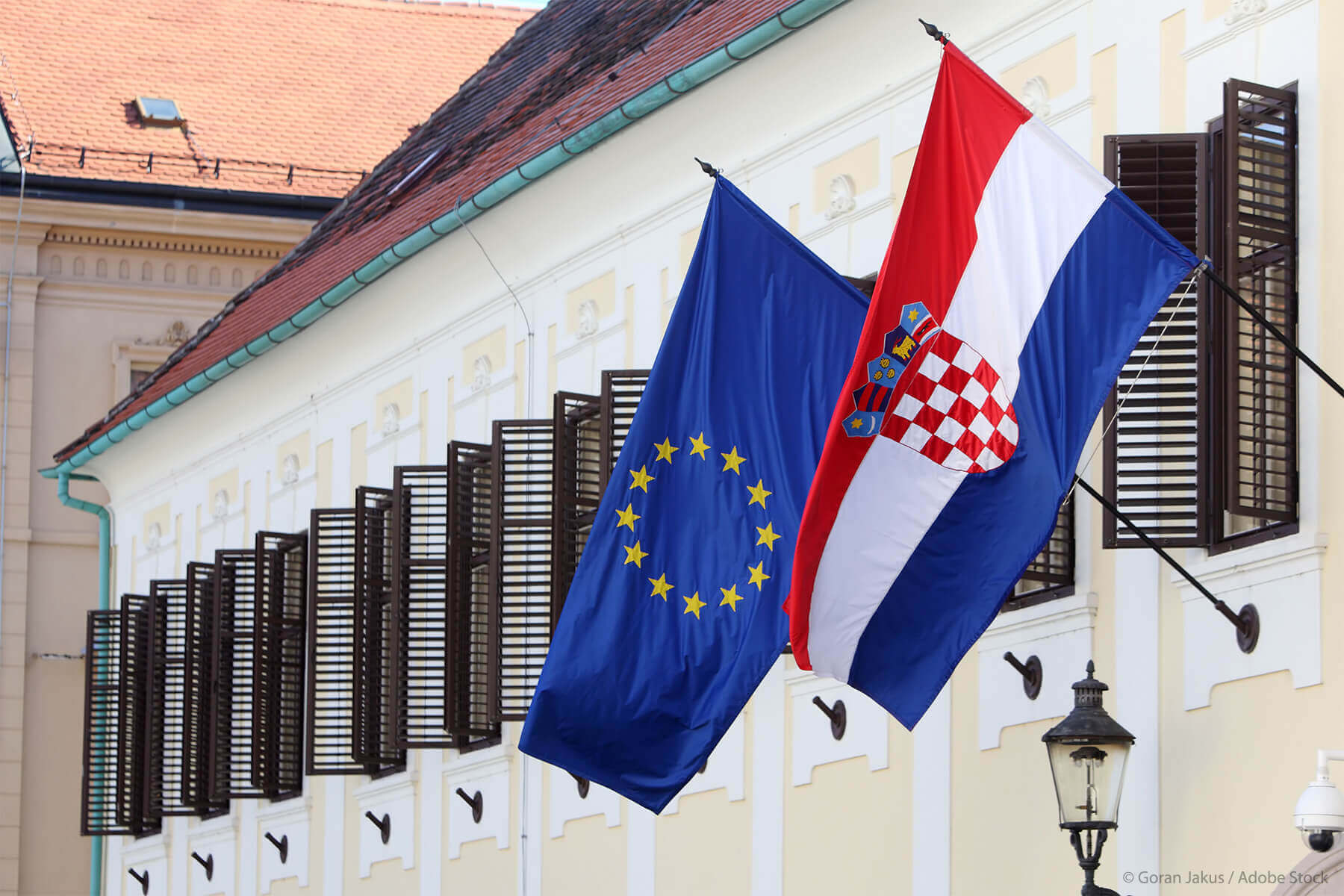On Sunday, Croatia became a fully integrated member of the European Union (EU) by joining the borderless Schengen Area, and relegating its previous currency, kuna, adopting the euro instead.
Croatia will jointly use the kuna and euro during a 14-day transition period that ends in mid-January.
In addition, while land and sea border checks will be withdrawn immediately, airport checks by the other 26 member nations will remain till March due to technical concerns.
Happy New Year - and a very special day for #Croatia! 🎉
— Croatia in the EU (@CroatiaInEU) December 31, 2022
Today we proudly became the 20th member of #euro area and the 27th member of #Schengen area!
In our 10th year of EU membership, Croatia is now part of the closest EU integration benefiting our citizens & economy. pic.twitter.com/ub8EzpxVNJ
European Commission President Ursula von der Leyen, Croatian Prime Minister Andrej Plenković and Slovenian President Nataša Pirc Musar visited Croatia’s border with Slovenia, the significance of which ended on 1 January, as Croatia joined the Schengen travel zone.
REACTIONS
Von der Leyen celebrated Croatia’s “great achievement” as a “symbolic moment” for the EU. She said the decision evidences Zagreb’s “deep-rooted attachment to the EU.”
Further, she said that the euro “brings macroeconomic stability and credibility” and protects citizens from crises.
🇭🇷 It is the season of new beginnings.
— Ursula von der Leyen (@vonderleyen) January 1, 2023
And there is no place in Europe where this is more true than here in Croatia.
Today the country joins the Schengen area and the Eurozone.
Two immense achievements.
I’m so glad to be here, on this day of joy and pride for Croatia. pic.twitter.com/d4A2JWoOXf
Likewise, Croatian Prime Minister Andrej Plenković said on Wednesday that joining the Schengen Area and eurozone were “two strategic goals of a deeper EU integration.”
Similarly, Interior Minister Davor Božinović said, “We opened our doors to borderless Europe. This goes beyond eliminating border controls, it is the final affirmation of our European identity.”
Other members of the EU also spoke out in support of the developments. French President Emmanuel Macron welcomed the decision, lauding Croatia for adopting the “stable and solid” euro currency that exemplified Europe’s resilience during Russia’s military aggression.
However, locals in Croatia are sceptical about the decision, which comes amid skyrocketing inflation and energy and food shortages. They are concerned that switching to the euro will increase the cost of living due to the unfavourable kuna-euro conversion rate.
I’m delighted to welcome Croatia as the 20th member of the euro area! My compliments to the Croatian central bank @HNB_HR and Governor Boris Vujčić on all the hard work to prepare for the adoption of the euro. It’s a fine start to 2023. pic.twitter.com/v6MHSpnJPZ
— Christine Lagarde (@Lagarde) January 1, 2023
Inflation hit 13.5% in November in Croatia and 10% in the eurozone. Meanwhile, the Croatian kuna is worth €0.13.
Others are concerned about the ongoing economic turmoil that Europe is already facing. European Central Bank President Christine Lagarde said, “We need to be careful that the domestic causes that we are seeing, which are mainly related to fiscal measures and wage dynamics, do not lead to inflation becoming entrenched.”
Nevertheless, some Croatians stress that the country has seen a shift in reliance on the euro over the past few decades, which, in turn, means that the decision to change the national currency will not cause much change in daily activities,
IMPLICATIONS
Croatia joined the EU in 2013, following which the bloc required it to adopt strict financial decisions to stabilise its exchange rate, control inflation, and reduce public spending.
After meeting the standards, Croatia secured the unanimous support of all 26 Schengen countries and was welcomed to the bloc in December. On the same day, Austria and the Netherlands blocked Bulgaria and Romania’s bid to join the bloc.
The Schengen Area houses 420 million people, who can travel across borders without passports or visas. Joining the zone will boost Croatia’s tourism industry, which already comprises 20% of the Eastern European country’s economy.
🇭🇷👏 From today Croatia joins the euro area and the border-free Schengen area.
— EU Council (@EUCouncil) January 1, 2023
Congratulations Croatia!
Čestitke Hrvatskoj!#schengen #euro pic.twitter.com/REtebUtowA
In addition, by adopting the euro, Croatia will now have strong financial ties with 19 other members that use the currency, thus facilitating travel and business. Further, it will allow Croatia to benefit from the European Central Bank.
While Slovenia has been responsible for protecting the external boundary of the Schengen Area since it joined the passport-free zone in 2007, Croatia will now be tasked with the responsibility. To this end, Zagreb will play a critical role in preventing illegal migration along the EU’s 1,350-kilometre-long external land border.
Accordingly, Croatian Prime Minister Andrej Plenković vowed to protect the bloc’s eastern borders, which it now shares with non-EU Western Balkan countries including Bosnia, Serbia, and Montenegro. However, he clarified that he did not intend to create physical barriers with the countries, and would instead use the “EU integration experience” to facilitate their membership in the bloc.
Today Croatia becomes the 20th country to introduce the euro! 🇭🇷💶
— European Commission 🇪🇺 (@EU_Commission) January 1, 2023
The euro will make travelling and doing business in Croatia easier.
It will also strengthen Croatia's macroeconomic stability and resilience.
Zbogom kuna, dobrodošao euro!
#EUROinCroatia
Similarly, Slovenian President Nataša Pirc Musar extended support for the Western Balkan nations’ membership in the bloc. She reaffirmed her intention of working with Croatia to “assist the states in [the] neighbourhood to join the EU.
All three countries have already initiated the process of joining the bloc. Montenegro and Serbia started formal talks on the issue in June 2012 and January 2014, respectively. Meanwhile, the bloc declared Bosnia as a candidate for membership in December.
While the EU accession talks with the Western Balkan countries were stalled in the past few years, the Russia-Ukraine war has reignited the bloc’s engagement, as they now play a critical role in the region’s security.

